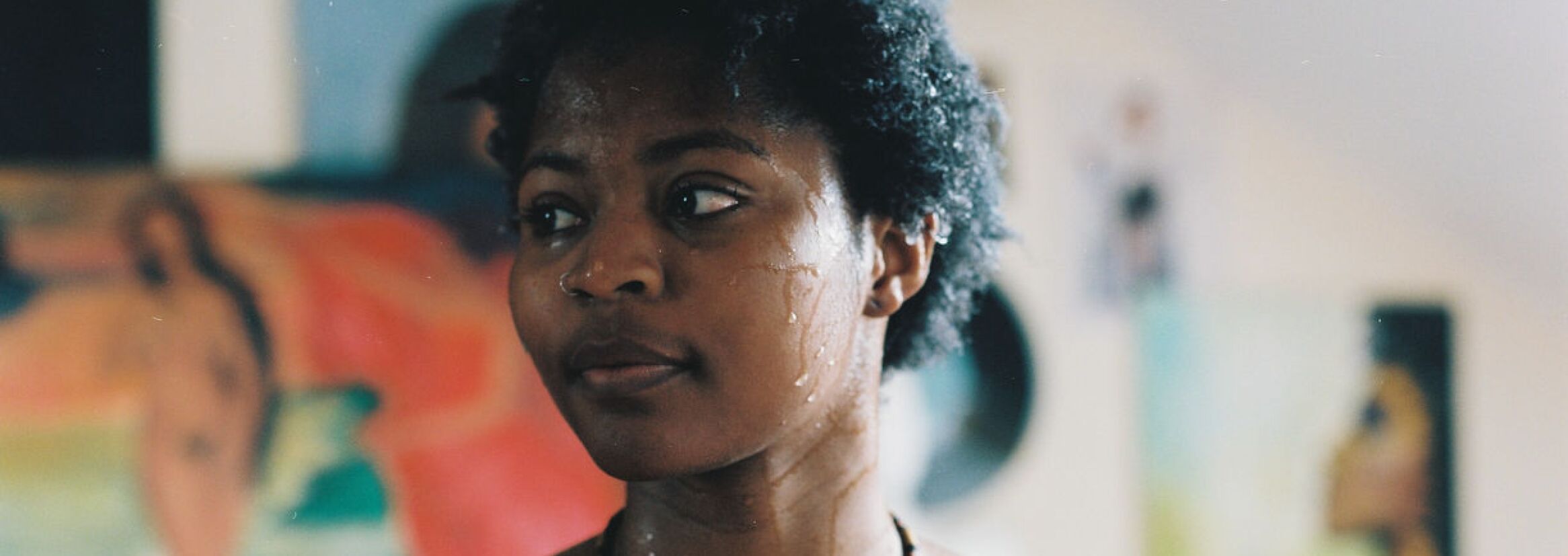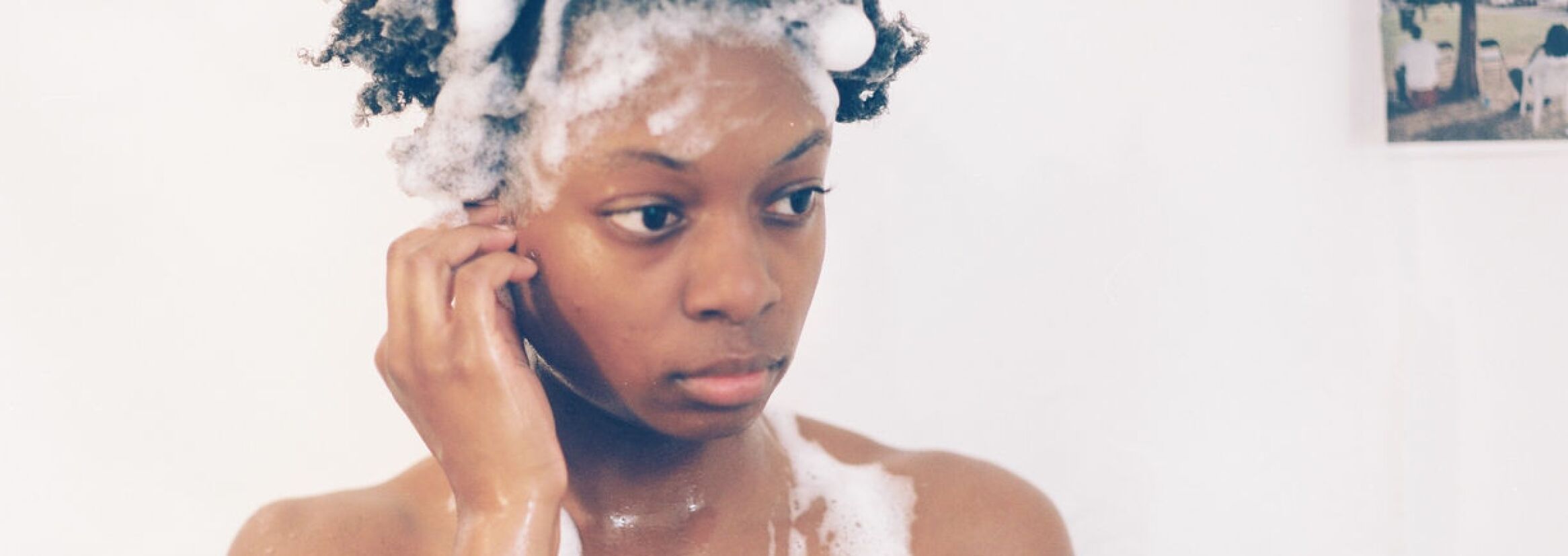
You work with so many different mediums – photography, film, writing and more. Tell us about your creative process.
I tend to choose my medium after I have solidified an idea. I could write a poem that actually evolves into a film or a photography series that then acts as research for a future piece. As ideas develop, I’ll allow myself to bring in a medium that I haven’t typically worked with before, for example the video installation I made this year –The Name I Call Myself – incorporated a scent being diffused into the space.
When did you get into art?
My first obsession was Salvador Dalí. The world that he created – it’s so far from what I actually do now – but the fact that he was able to transport you into this crazy world… like, what the hell? This guy is a freak in the best way, he really knew what to say and he created such beautiful things around that world, which actually looked like a reflection of my brain at the time. I was probably 5 years old, all of those loopy things were going on in my mind anyway. That excitement at the idea that I could create my own world took shape then.
Tell us about the work you're showing at the Red Hook Labs New Artist III show this month.
It’s a selection of work from three different projects, one of which is ongoing. There’s one called SISTAHS that I shot in Paris at a time when there was a lot of police brutality and murders of young black people across America and London, and it is never not intense to keep seeing that in the news. I was also thinking about what it means to have a girlhood and that kind of stereotype of how girls don’t look after each other versus how boys do. Black girls especially have a stigma of being rude and argumentative, so I wanted to strip all of these ideas away completely.
Another project in the show is Process, which is in a sense the prequel to Process the film. I wanted to explore what it would be like to pull people out of their hair washing process and document that throughout. I want to highlight that black and afro hair can be beautiful, even the hidden states of it that you never really see.
“The most disrespected woman in America, is the black woman. The most unprotected person in America, is the black woman. The most neglected person in America, is the black woman.”
The last piece is from a work in progress, a project I’m doing on girls – specifically black girls – who go to private school and/or are more affluent. Instead of a poverty-stricken image of blackness in society, I wanted to look at girls from a wealthy background. I got an art scholarship to my secondary school, and there were only two or three black girls max in my whole year. I went back to that school and chatted with some of the current black students and one of the girls said something brilliantly devastating: “When people think of private school girls, I don’t think they’d ever think of someone that looks like us.” That really struck me, because it brings up this idea of representation and the allowance of that existence to be a more affluent black girl or, going even further back, to be an educated black woman. So often we see the ghettoization of blackness in the city landscape. I’ve never really seen black girls in fields, and South London, where I'm from, is full of them. I want to show that blackness truly is free.

Do you mostly rely on personal experiences to inform your artwork?
I do, but I’m not restricted by them. As the creator, my work will always be intertwined with my thoughts, feelings and observations (I made them after all); but as a young, black, queer female, my existence is already overlooked by much of the world. Something that always stays with me is when Malcolm X said, "The most disrespected woman in America, is the black woman. The most unprotected person in America, is the black woman. The most neglected person in America, is the black woman." (from a speech that Malcolm X gave on May 5, 1962 at the Los Angeles funeral service of Ronald Stokes, who was killed by the LAPD). It makes sense to revolt in a way that I can do best, which is through my art.
Tell us more about that drive to revolt.
When you’re born, you’re introduced to these memories of your ancestors and what they had to go through. As much as it is beautiful, memory is a heavy thing. It’s important to not get swallowed up by the weight of this history despite society’s constructs being a constant reminder of its existence. I revolt against this through my art – paintings I’ve been working on and sculpture I want to delve into – I’ve been leaning into the abstract space to expose the new stories that could be told, the new memories that should be made.

What excites you about abstract expressionism - as an artist yourself, and also as a viewer?
There’s a series of black art retrospectives at the Tate in London that just started off with [abstract artist] Frank Bowling, which is so important because he’s this artist who’s been exploring color just for color’s sake, getting lost in these worlds, blackness to the side. Only later did he realize a lot of the light that’s in his work was because, subliminally, he was thinking of the light in Guyana, which is where he was born. It’s always there, you know? [Your blackness] is always there but it doesn’t have to be as apparent. We're Black and we know it. It’s important for yourself as an artist to have these moments – to step away from that identity – I'm black, but that’s not all I am. For example, I could have that Frank Bowling moment and then come back to fighting politically for rights. It’s important for the artist to make that decision themselves now. Before, [black artists] almost had to express themselves that way because it was the only safe space for them to enter art in the 60s and 70s, but now we can be much freer and we have a greater scope to work within.
Rhea is one of the twenty-five emerging, international photographers, unrepresented by a gallery or an agency, selected to partake in the Labs New Artists III show from open call by a jury of industry leaders. You can view her work, as well as the rest of the exhibit at Red Hook Labs until July 28. Information here.
Red Hook Labs
133-135 Imlay Street
Brooklyn, New York
11231









